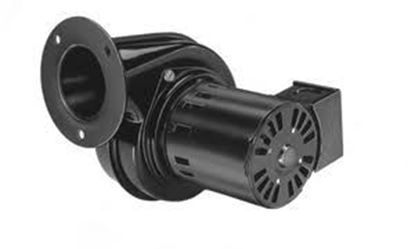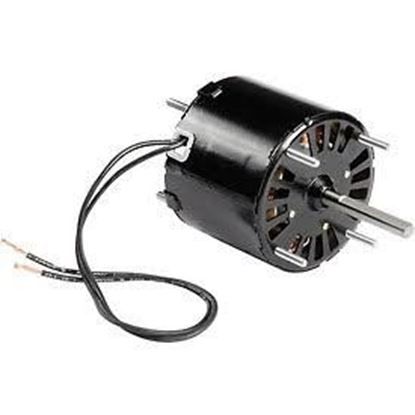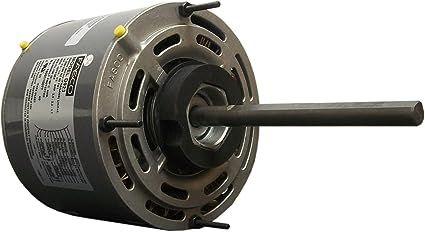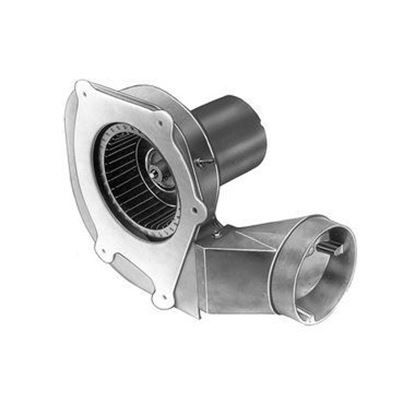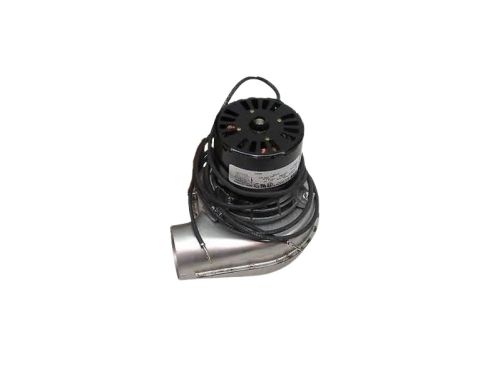
Fasco Blower Motor Troubleshooting in Refrigerator: Common Issues & Solutions
When it comes to your refrigerator’s ability to keep food fresh and safe, few components are as essential as the blower motor. Fasco Blower Motors play a crucial role in circulating cold air throughout the refrigerator, ensuring uniform cooling across compartments. A well-functioning blower motor prevents issues such as uneven temperature or spoiled food, both of which can be costly and inconvenient.
Regular maintenance and prompt attention to signs of trouble in Fasco Blower Motors are imperative for peak cooling performance. Whether your refrigerator is making strange noises, failing to cool properly, or showing signs of airflow issues, knowing the ins and outs of Fasco blower motor replacement and basic troubleshooting is a valuable skill for any homeowner or technician.
Key Indicators of Fasco Blower Motor Problems
When Fasco Blower Motors begin to fail, they rarely do so without warning. Here are the telltale signs that your motor might need a closer look:
-
Strange noises or humming: If your refrigerator starts making unusual sounds, such as grinding, squealing, or persistent humming, it’s a strong indication that the Fasco Blower Motor may be wearing out or has internal problems.
-
Air not circulating inside the refrigerator: The most obvious sign is insufficient airflow. If the refrigerator feels warm or if you notice frost buildup in the freezer section, the Fasco Fan Motor might be underperforming or failing altogether.
-
Intermittent operation: If your fan seems to start and stop randomly, or if airflow is inconsistent, there could be wiring issues, dirty components, or early signs of complete failure.
Prompt identification of these symptoms can help you decide whether basic troubleshooting, Fasco blower motor replacement, or professional intervention is required.
Common Problems Found in Fasco Blower Motor Units
Let’s break down the most frequent problems homeowners encounter with Fasco Blower Motors in refrigerators:
Dust buildup and motor clogging
-
Over time, dust and debris accumulate on the motor’s blades and housing, causing restricted airflow and increased strain on the components. This not only reduces the motor’s efficiency but also accelerates wear and tear, frequently leading to a furnace blower not working scenario.
Electrical failure or power supply issues
-
Loose connections, frayed wiring, or a faulty power supply can stop the Fasco Fan Motor dead in its tracks. Before assuming the motor itself is defective, always check the refrigerator’s power connection and circuitry.
Motor overheating or tripping
-
Thermal overload can occur if ventilation is blocked or if the motor is forced to work under excessive load. Many Fasco Blower Motors are equipped with internal thermal fuses that will trip to prevent permanent damage. If the motor cools down and still doesn’t restart, Fasco blower motor replacement may be necessary.
Awareness of these issues is crucial when considering how to proceed with troubleshooting or Fasco fan motor replacement.
Troubleshooting Guide for Fasco Blower Motor in Refrigerators
Effective troubleshooting for Fasco Blower Motors combines visual assessment, electrical testing, and targeted resets to isolate and correct the underlying problem.
Step 1: Visual inspection
-
Unplug the refrigerator before any inspection!
-
Examine the blower motor for visible signs of dust buildup, corrosion, or physical damage.
-
Ensure the motor’s blades spin freely with no obstructions.
-
Check for signs of burnt wires or connectors—a common culprit in the furnace blower not working.
Step 2: Testing with a multimeter
-
Use a digital multimeter to check for continuity across the motor’s windings.
-
Confirm voltage input at the motor terminals (reference your model’s wiring diagram).
-
A reading of zero continuity or fluctuating voltage often means Fasco blower motor replacement is needed.
Step 3: How to reset blower motor
Knowing how to reset blower motor is a key troubleshooting technique. Most modern Fasco Blower Motors are equipped with a reset button or switch, typically located on or near the motor housing.
-
Locate the reset button (refer to your refrigerator’s schematic or manual).
-
Press and hold the button for 5-10 seconds.
-
Wait a few minutes before plugging the refrigerator back in.
-
Never attempt a reset with wet hands or if the area is damp.
Step 4: When resetting doesn’t work—what’s next?
If “how to reset blower motor” efforts don’t restore function, the problem may be severe. At this point, check for internal motor faults or replace the unit entirely. Symptoms such as persistent tripping, visible damage, or no response after resetting are strong indicators that Fasco blower motor replacement is unavoidable.
Fasco Blower Motor Replacement Guide
Sometimes, no amount of troubleshooting will revive a failed Fasco Fan Motor. Here’s your comprehensive guide to Fasco fan motor replacement.
-
Access the motor: Remove refrigerator shelves and the rear panel to expose the blower/fan compartment.
-
Disconnect wiring: Carefully detach all wires connected to the Fasco Blower Motor.
-
Unscrew the motor: Use the appropriate tool to remove mounting screws and support the motor to avoid dropping it.
-
Install the new motor: Match model numbers and specifications exactly. Place the new Fasco Fan Motor in position and secure it with screws.
-
Reconnect wiring: Confirm each wire is connected to the correct terminal.
-
Reassemble and test: Replace all panels, plug in the refrigerator, and test the motor’s operation.
-
Importance of matching model specifications: Using the wrong replacement motor can compromise performance and even damage your refrigerator. Double-check part numbers and electrical ratings before installing a new Fasco Blower Motor.
DIY Fridge Fix: How to Test a Refrigerator Thermostat
Fasco Blower Motor Replacement Cost
The cost of Fasco blower motor replacement can vary widely. Here’s what you need to know:
-
Average blower motor replacement cost: Homeowners can expect to pay anywhere from $100 to $400 for a standard Fasco Blower Motor for a refrigerator, depending on the model and brand.
-
Labor charges: Hiring a professional can double or triple costs if installation proves complex.
-
Motor type: Specialized or energy-efficient motors typically cost more.
-
Urgency: Emergency repairs (weekends or after hours) are more expensive.
Maintenance Tips for Fasco Blower Motor Longevity
Preventing “furnace blower not working” scenarios and unexpected motor failure is much easier and cheaper than dealing with emergency repairs. Here’s how to maintain your Fasco Blower Motors for years of trouble-free operation:
-
Routine cleaning and inspection: Wipe dust and debris regularly, especially on the blades and housing.
-
Ensuring proper ventilation: Keep refrigerator vents clear of obstructions for effective motor cooling.
-
Scheduled resets: With some models, periodic resets (following safe practices for “how to reset blower motor”) help clear temporary faults.
-
Monitor for early failure symptoms: Address unusual noises, decreased airflow, or intermittent operation promptly to avoid complete failure and the need for a full Fasco blower motor replacement.
Consistent maintenance dramatically reduces the likelihood of facing a high blower motor replacement cost.
9 Refrigerator Problems & Proven Fixes You Need to Know
The reliability of your refrigerator, and by extension your household routine, depends heavily on the health of its Fasco Blower Motors. Regular maintenance, prompt attention to warning signs, and understanding the process of Fasco blower motor replacement empower you to address issues effectively.
Knowing how to reset blower motor, what to look for during troubleshooting, and when replacement is necessary can restore optimal refrigerator performance and save you from unexpected expenses. HnKParts is the one-stop shop for all your home appliance needs. Our extensive inventory of appliance parts includes Refrigerator Parts & Accessories from top-selling manufacturers at competitive prices.
FAQs
Are Fasco blower motors interchangeable with other brands?
Not always. Fasco Blower Motors are designed with specific RPM, voltage, and mounting styles. Always check the part number and specifications before replacing it with another brand.
How long does a Fasco blower motor typically last in a refrigerator?
A well-maintained Fasco blower motor can last anywhere from 8 to 12 years, depending on usage, environment, and maintenance frequency.

